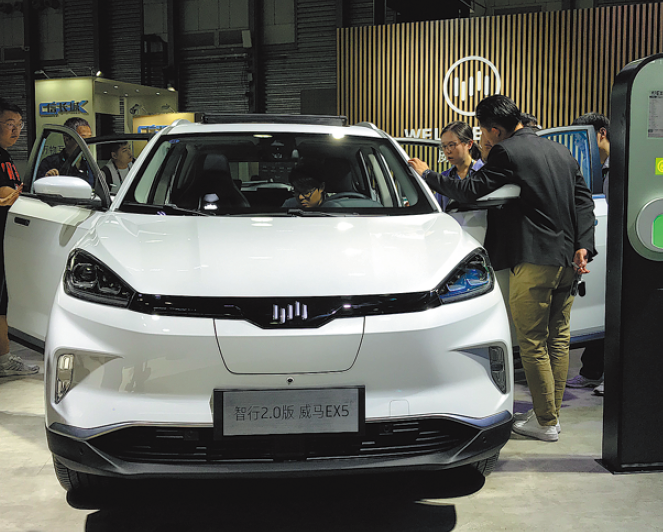Local governments aim to incentivize auto sales in wake of virus outbreak


The carmaker has partnerships with Volkswagen and General Motors.
"Based on the industry development status and impact of the novel coronavirus break, governments should release related policies to relax new energy vehicle restrictions, expand in rural markets and extend subsidies," said Fang Yunzhou, founder and chairman of Zhejiang Hozon New Energy Automobile Company.
Shanghai and Hainan provinces also released policies to simulate vehicles sales on May 20.
Hainan's government will offer residents 10,000 yuan if they buy a pure electric vehicle, plug-in vehicle or fuel cell vehicle and register from April 30 to the end of this year.
The province will provide 150 billion yuan at most.
Shanghai government will provide 4,000 yuan for residents who abandon gasoline vehicles with national emissions standard IV or lower and buy a new one with State VI emission standards by the end of this year.
The city will also offer the locals subsidies of 5,000 yuan to pay the private or public charging piles services.
Earlier this month, Wuhan in Hubei province rolled out subsidies to support local auto companies as the city tries to revive its economy after months of heavy lockdowns.
The local authorities will offer 10,000 yuan subsidies to residents who buy locally made electric vehicles.
A gasoline car would come with a subsidy of up to 5,000 yuan.
Wuhan was also considering supporting local automaker Dongfeng Motor Corp.
The city produced 1.5 million vehicles last year and is also home to plants owned by Dongfeng Motor Group's joint ventures with Honda Motor and Peugeot SA, and General Motors' partnership with SAIC Motor.
The Hangzhou government in Zhejiang province decided to offer another 20,000 license plates this year. The city is one of eight metropolises in China that limits the number of license plates.
Cities in Guangdong, Hunan and other provinces released different policies based on local conditions to stimulate auto sales during the last two months.
According to a report released by Industrial Securities Company on Thursday, local measures have become the main force of policy simulation this year and are expected to boost passenger car sales of 790,000 to 1.16 million units.
The company estimated that the provinces that have introduced the measures are expected to increase sales of 785,000 units in 2020.
Beijing has the most stringent control of vehicle purchases, for both fuel vehicles and new energy vehicles.
By the end of last December, there were 3.34 million people applying for the license plate of the gasoline vehicle in the capital. Only 38,200 plates will be provided this year.
By the end of April, 54,200 new energy vehicle plates were given away and Beijing still has 438,000 people applying for the license plate of a new energy vehicle. New applicants may have to wait for up to nine years to get one.
Industry insiders said consumption of around 3 million units is suppressed in Beijing. If the city relaxes the restriction, auto sales will surge.



































